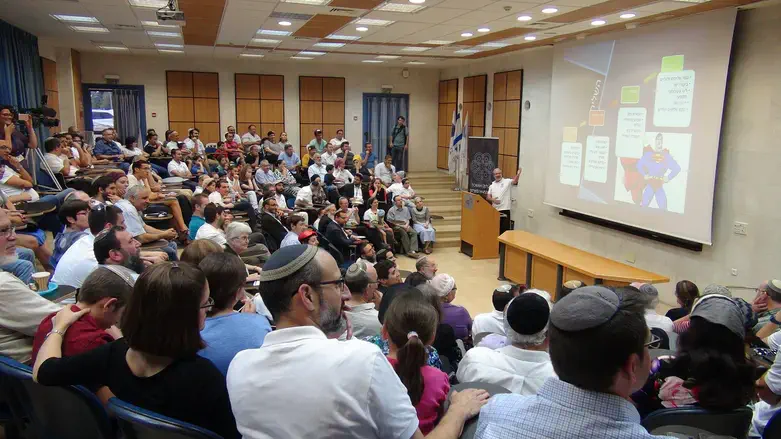
Ezer Diena is Currently Teaching at YU Torah Mitzion Beit Midrash Zichron Dov
and Rabbinic Assistant, BAYT
The sixth Aliyah of Parshat Ekev opens with telling us that unlike Egypt, where rain is not that important, the land of Israel’s successes lie in G-d providing rain for the crops to grow. Indeed, the Torah emphasizes this in the following verses (which we recite twice daily in the paragraph following the Shema, Vehaya Im Shamo’a), that when we do G-d’s will by following the Torah and Mitzvot, He opens the heavens for us, and will provide us with excellent yields.
However, the Torah continues by telling us “You shall gather your grain”, which is taken by Rabbi Yishma’el (one opinion in Berachot 35b; Davidson Edition translation follows) to be an actual commandment, that one must actually work the land:
תָּנוּ רַבָּנַן: "וְאָסַפְתָּ דְגָנֶךָ" מָה תַּלְמוּד לוֹמַר? — לְפִי שֶׁנֶּאֱמַר: "לֹא יָמוּשׁ סֵפֶר הַתּוֹרָה הַזֶּה מִפִּיךָ" — יָכוֹל דְּבָרִים כִּכְתָבָן, תַּלְמוּד לוֹמַר: "וְאָסַפְתָּ דְגָנֶךָ" — הַנְהֵג בָּהֶן מִנְהַג דֶּרֶךְ אֶרֶץ, דִּבְרֵי רַבִּי יִשְׁמָעֵאל.
The Sages taught: What is the meaning of that which the verse states: “And you shall gather your grain”? Because it is stated: “This Torah shall not depart from your mouths, and you shall contemplate in it day and night” (Joshua 1:8), I might have thought that these matters are to be understood as they are written; one is to literally spend his days immersed exclusively in Torah study. Therefore, the verse states: “And you shall gather your grain, your wine and your oil,” assume in their regard, the way of the world; set aside time not only for Torah, but also for work. This is the statement of Rabbi Yishmael.
As Chatam Sofer (in his commentary to Sukkah) understands, this physical working of the land of Israel is technically of even more importance than Torah study itself! Why would working in the fields gathering grain be more important than studying the G-d-given Torah?
Perhaps we can suggest that it is not only about the importance of actually doing work, but maybe more so, about the appreciation of what G-d has given us. We are commanded to collect the grain as a form of our Hakarat Hatov, demonstrating gratitude to Hashem for the blessings he bestowed upon us.
Therefore, the key is that we must not only serve G-d and act appropriately in order to receive G-d’s blessings in the first place, but we must further appreciate the blessings and gifts G-d gives us afterwards as well, by not leaving grain behind in the fields. This is why it is so important for us to “gather our grain” – to show our thanks to G-d for providing us with the produce, which allows for the “cycle” of goodness to continue.
This lesson is important not just for Hashem himself, but also for all those who make important contributions to our lives, wherever we may be. It’s not enough to appreciate the good that we get from others; we must take time to act in a way that shows just how much we appreciate it. Whether it be our families and friends, our courageous Chayalim, or G-d Himself, may we merit to properly demonstrate our appreciation towards all those who help us, and thereby continue to receive those blessings and more, with the coming of Mashiach, speedily in our days.
For comments: ediena@torontotorah.com